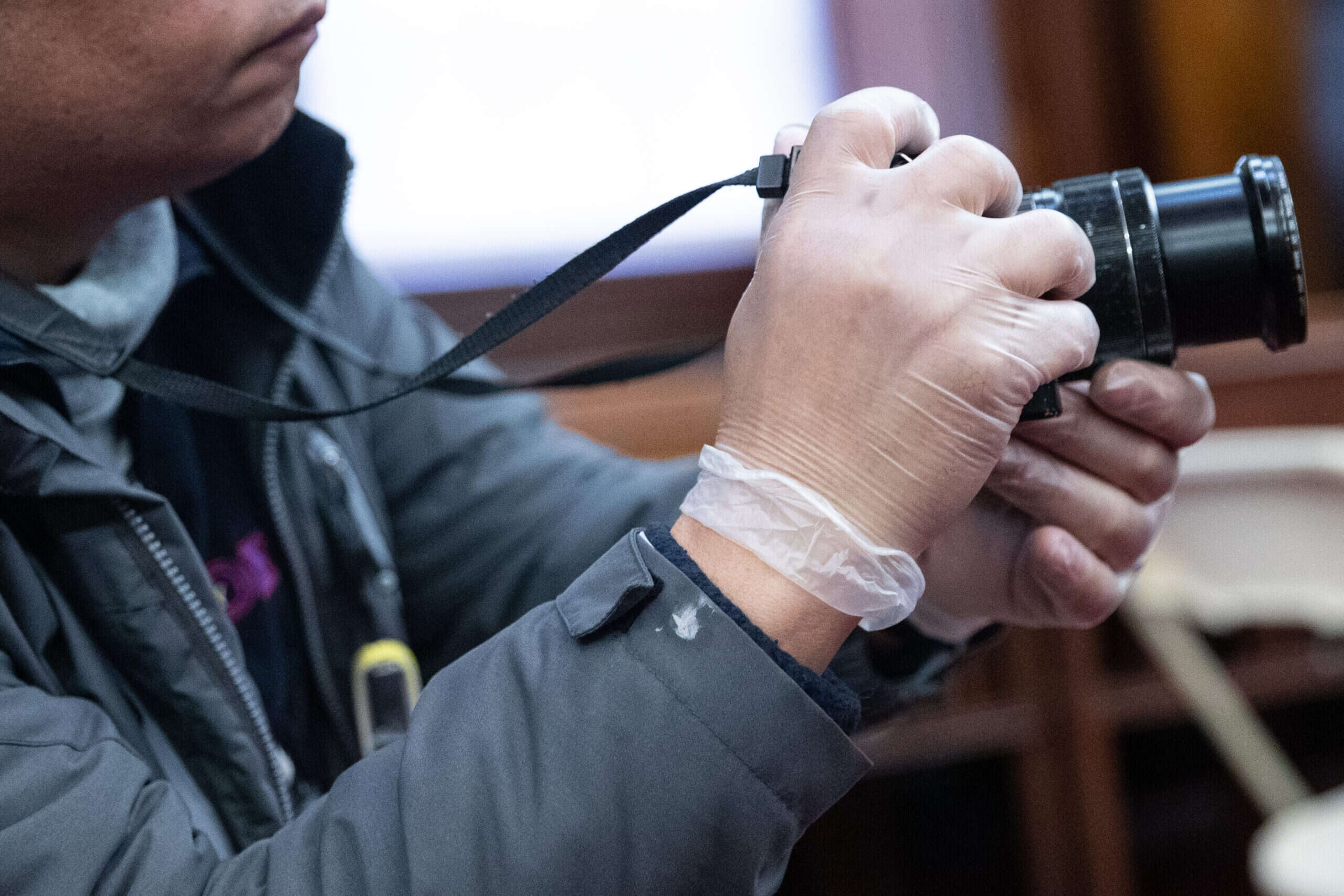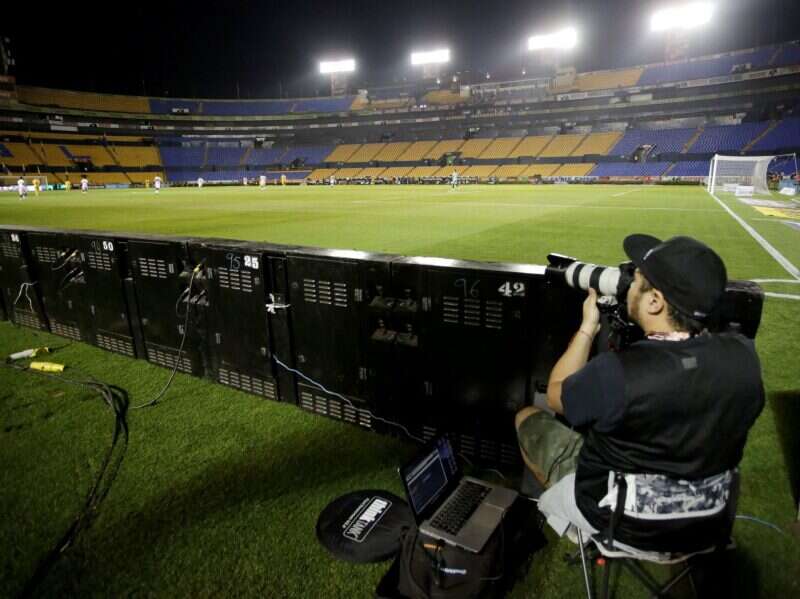
Freelance journalists and photographers need better financial support to cope during the coronavirus (Covid-19) pandemic as many face having their work diaries cleared out, industry representatives have said.
The National Union of Journalists has joined calls for Chancellor Rishi Sunak to put in place a specific support package for the self-employed while the country faces a period of self-isolation and quarantine measures.
Currently the only recourse for many freelances who cannot work because they are self-isolating or their assignments have been cancelled is statutory sick pay, Universal Credit or Employment Support Allowance.
But SSP is just £94.25 per week, while both benefits are designed for those on low or no incomes, not self-employed people.
About a third (8,000) of National Union of Journalists members are freelance and the proportion has been increasing.
Despite a common perception of freelance journalists working at home in their pyjamas, a recent survey by the National Union of Journalists of its freelance members showed that 40 per cent undertake work away from home, whether at a clients’ offices or out on assignment.
Francis Sedgemore, a science journalist and chairman of the NUJ’s Freelance Industrial Council, said: “Photographers are the most visible example, but writers and editors often work away from home, and we know that some have lost income as a result of coronavirus-related restrictions.”
A survey by broadcasting union Bectu, which represents technical staff such as cameramen, shows that 97 per cent of creative freelances are unsatisfied with the Government’s response to the pandemic so far.
Philippa Childs, head of Bectu, said: “We need urgent and specific action from the Government in the coming days or it may already be too late for many freelancers to avoid financial ruin.”
Bectu welcomed a delay to controversial IR35 tax reforms affecting freelance workers being put in place.
But it said other measures that would help include interest-free tax back loans and other forms of borrowing such as credit card interest being suspended or cut to zero.
Photographers among those facing work droughts
British Press Photographers’ Association chairman Lindsey Parnaby said photojournalists are “very concerned” as they face “empty work diaries as events are suspended facing the prospect of no income indefinitely”.
About 90 to 95 per cent of BPPA’s members are self-employed.
“Government intervention is needed swiftly – preferably before they join the job centre queues,” Parnaby said.
Parnaby, who often covers sports events as a stringer photographer for news agency AFP, told Press Gazette he is himself “one of the many who have had their work diary completely wiped out” for the next six weeks.
Fears around the spread of coronavirus and Government advice against mass gatherings has lead to large numbers of cancelled events.
Parnaby said AFP and some other organisations are honouring all dates that were in the diary, finding alternative work where possible or paying freelances regardless. But beyond that, things will become difficult.
The Guardian is similarly paying journalists who work shifts on a casual basis even if they cannot complete their shift because they are ill or self-isolating.
A Guardian News and Media spokesperson said: “This is a fast-moving situation and we are in communication with people who work for us to try to minimise the impact on them wherever possible.”
Three-quarters fear impact on income
In a poll that launched on the Press Gazette website on Monday, 74 per cent of 255 respondents (at time of writing) had said coronavirus posed a threat to their income.
Photographer Natasha Hirst, chairman of the NUJ Photographers’ Council, told Press Gazette she had about £1,000 worth of work cancelled or postponed on Monday and had spoken to others in a similar situation.
“There’s a lot of people who are already feeling quite desperate about it, especially because rates for photographers have dropped so much over the last few years so there are many photographers who are not going to have much contingency or money set aside,” she said.
“They might have enough saved just for illness or small patches of not having enough bookings but nobody’s really prepared for a period of time that might extend for a few months.
“At the moment news photographers have still got a reasonable amount of work but people who rely more on editorial and PR commissions or maybe project work, anything that would have involved travelling, has been pretty bad for people. Sport, music, any big events.
“I cover a lot of conferences so I’ve had quite a few of those bookings cancelled and there are a few coming up in a month or two’s time and there is a big question mark over whether those will go ahead, so it isn’t really a great picture.”
For this reason, the international Women Photograph group has launched an emergency fund to help female and non-binary photographers whose income has been hit by coronavirus.

Media during a game played behind closed doors at the Universitario Stadium, Monterrey, Mexico on 14 March as the number of coronavirus cases grows worldwide Picture: Reuters/Daniel Becerril
Parnaby said that among the “hardest hit” photographers will be those who undertake speculative work that they submit to the press.
He added that many picture desk staff are freelances and they “don’t know where they stand”.
Hirst noted that even those who do stay at home to work could face difficulties as companies make cuts to stay afloat.
“If you’re a freelance photographer or videographer your work is [dependent] on you going out and working with other people to do your job and that has all fallen down.
“Even if you’re a freelance writer, if the people who are usually commissioning people are struggling financially they are going to be cutting their costs.
“The freelance budget is going to be one of the first places businesses cut so even if you are sitting at home writing you’re probably still going to lose some work.”
Parnaby feared that restrictions on freedom of movement, as have now been put in place in Italy and France to stem the spread of coronavirus, would have an “even bigger impact on everyone, not just photographers but reporters and picture desk staff in general”.
He noted that photographers are a “very important” part of newsgathering as “a lot of stories might not see the light of day if there was no picture to accompany it”.
“Some reporters may be working from home – they can make calls to organise and get information and get the story in that way – but photographers have to be in sight of what’s happening to photograph it.”
Read all Press Gazette’s coverage of the coronavirus pandemic and the news industry here
Picture: Reuters/Jeenah Moon
Email pged@pressgazette.co.uk to point out mistakes, provide story tips or send in a letter for publication on our "Letters Page" blog
